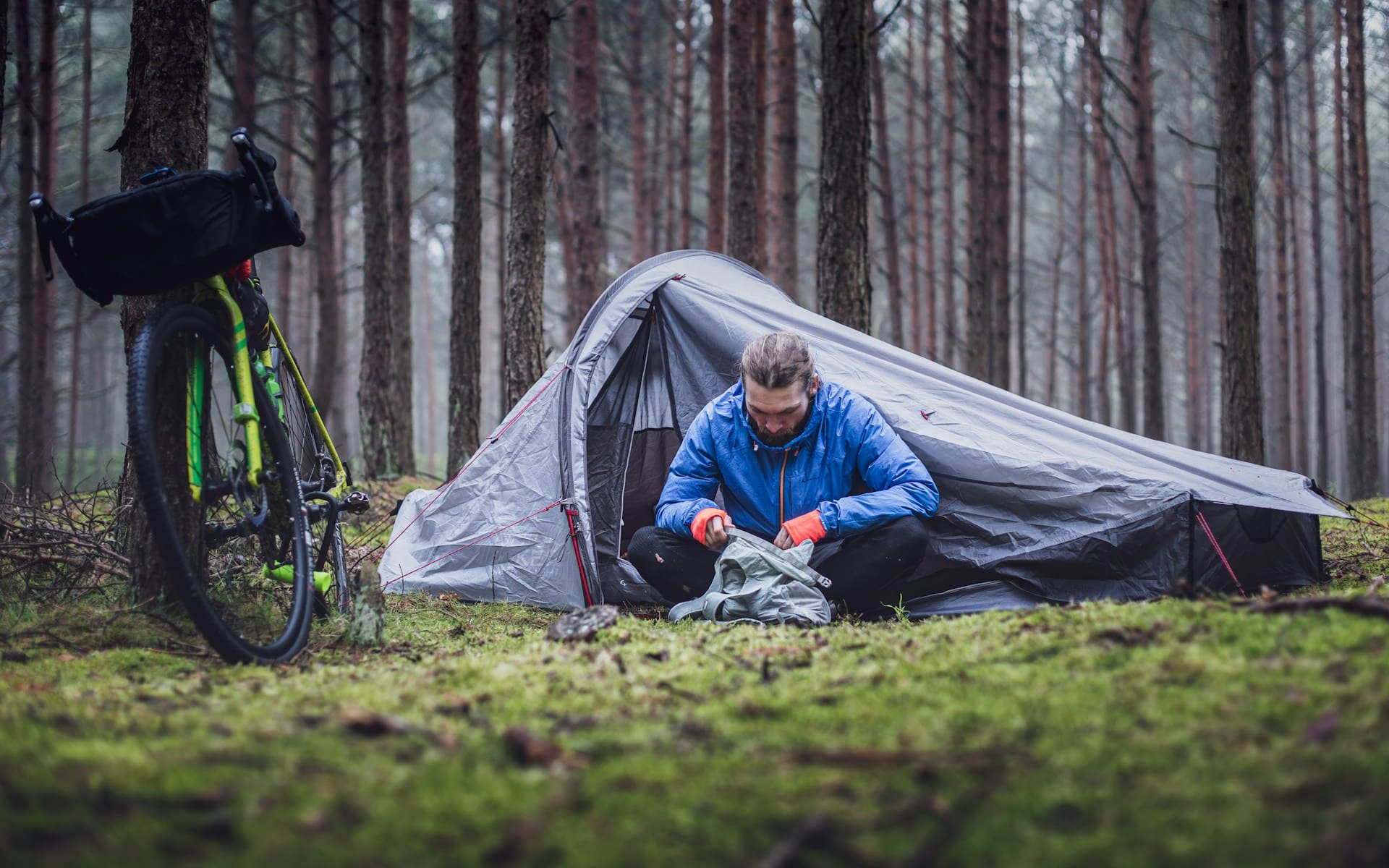What are the most effective natural mosquito repellants for camping trips in the UK marshlands?

The UK marshlands' idyllic setting, with its teeming wildlife, lush vegetation and enchanting sunsets, is a camper's paradise. However, a common plight that many campers grapple with in these marshlands is the ubiquitous presence of mosquitoes. Their incessant buzzing and bites not only disrupt the tranquility, but also pose potential health risks. Thankfully, a variety of natural mosquito repellants can keep them at bay, allowing you to enjoy your camping trips bug-free. Let's delve into the most effective natural mosquito repellants for camping in the UK marshlands, exploring their ingredients, benefits and how to use them for optimal protection.
The Growing Popularity of Natural Repellants
In recent years, there has been a marked shift towards natural mosquito repellants. This growing preference can be attributed to the mounting concerns over the harmful side effects of conventional mosquito repellants containing DEET, a potent chemical that can irritate the skin and eyes. Natural repellants, on the other hand, are DEET-free and made from plant-derived ingredients, making them safer for your skin and environment.
Sujet a lire : How can you ensure a pet-friendly camping environment in the busy sites of Southern England?
Their effectiveness is not compromised either. These natural repellants are remarkably successful at keeping mosquitoes at bay, as they contain essential oils that mosquitoes detest. Moreover, they don't leave a greasy residue on your skin and often have a pleasant smell, unlike many chemical-laden repellants.
Most Effective Natural Mosquito Repellants
There is a wealth of natural mosquito repellants available, but some stand out for their proven efficacy against these pesky insects. One such product is Lemon Eucalyptus Oil. This oil, derived from the lemon eucalyptus tree, is one of the few natural repellants that the Centers for Disease Control and Prevention (CDC) approves. It's effective against a variety of mosquitoes and can provide protection for up to six hours.
A voir aussi : What precautions should you take when camping near sheep farms in Yorkshire?
Another commendable natural repellant is Picaridin, a synthetic compound that resembles a substance found in the black pepper plant. Repeated studies have shown that Picaridin-based repellants work as well as DEET products, offering long-lasting protection without the side effects.
Citronella is also an effective natural mosquito repellant. Its strong fragrance masks the scents that attract mosquitoes, keeping them away. While its protection duration is shorter than other repellants, it's a great DEET-free option for short camping trips or for use around the campfire.
Natural Mosquito Repellant DIY Recipes
While there are numerous natural mosquito repellent products you can purchase, you can also make your own at home with just a few ingredients. One popular DIY repellent involves mixing essential oils such as lavender, peppermint, or tea tree with a carrier oil like coconut or jojoba. The essential oils emit strong scents that deter mosquitoes, while the carrier oil allows for easy application on your skin.
Another homemade recipe uses garlic, a natural insect deterrent. Simply crush a few cloves of garlic and boil them in water. Once cooled, you can spray the mixture onto your skin or camping gear. Don't worry about the smell; it dissipates quickly but remains potent to mosquitoes.
How to Use Natural Mosquito Repellants Effectively
To maximize the effectiveness of your natural mosquito repellants, it's crucial to use them properly. Apply the repellant thoroughly on all exposed skin and clothing, and reapply it every few hours, or as directed by the product instructions.
Layering different types of repellants can also enhance their effectiveness. For instance, you could apply a Picaridin-based repellant on your skin, burn Citronella candles around your campsite, and spray your camping gear with a homemade garlic solution. This multi-pronged approach will ensure that mosquitoes keep their distance from you.
Your natural mosquito repellants are just one aspect of your bug-free camping strategy. You can augment their effectiveness by wearing light-colored and long-sleeved clothing, avoiding the use of fragrant products that attract mosquitoes, and setting up your tent in breezy areas where mosquitoes are less likely to fly.
In summary, while camping in the UK marshlands may expose you to persistent mosquitoes, natural repellants offer a safe and effective way to keep these insects at bay. With the right products or homemade solutions, you can enjoy your camping trips without the buzz and bites of mosquitoes.
Key Features of Effective Natural Mosquito Repellants
When choosing a natural mosquito repellent for your camping trip, several key features enhance their effectiveness. Firstly, the active ingredients should come from natural sources. Essential oils, such as lemon eucalyptus, citronella, and lavender, are popular choices due to their strong repellent properties. However, it's essential to mention that the concentration of these oils in the product matters. Higher concentrations (typically around 30%) provide longer-lasting protection.
Secondly, the repellent's application form contributes to its effectiveness. Sprays are typically easier to apply uniformly, but creams and lotions can provide a more concentrated and longer-lasting layer of protection. Your choice would depend on your personal preference and the nature of your camping trip.
Durability is another key feature to consider. The best mosquito repellants offer protection for several hours, reducing the need for frequent reapplication. This is especially important if you plan to spend lengthy periods outdoors or are camping in areas with a high mosquito population.
Finally, the repellent should be safe to use. The best natural repellents are DEET-free, hypoallergenic, and non-irritating, making them suitable for all skin types, including sensitive skin.
Additional Measures for a Bug-Free Camping Experience
In addition to using natural mosquito repellents, there are several other measures you can take to ensure a bug-free camping experience in the UK marshlands. One such measure is the use of a mosquito net. These nets, when properly installed around your sleeping area, provide a physical barrier against mosquitoes and other insects. They are particularly useful in areas with high mosquito populations.
Another measure is the use of citronella candles. When lit, these candles emit a scent that mosquitoes find repellent, creating a mosquito-free zone around your campsite. They also add a warm, inviting glow to your campsite, enhancing its ambiance while keeping mosquitoes at bay.
Standing water is a known breeding ground for mosquitoes. To prevent them from multiplying, ensure you properly dispose of any standing water around your campsite. This includes water in drink containers, dishes, and even puddles that may have formed after a rainstorm.
Lastly, it's critical to wear appropriate clothing. Light-colored, long-sleeved clothing can help minimize mosquito bites as mosquitoes are attracted to dark colors and can easily bite through thin fabrics.
Conclusion
Camping in the UK marshlands can be an enchanting experience, but the presence of mosquitoes can dampen the enjoyment. Thankfully, natural mosquito repellents offer an effective, DEET-free solution to this problem. From essential oils to citronella candles and mosquito nets, these natural pest control measures can help ensure a bug-free camping trip.
Remember, the effectiveness of mosquito repellants rests not only on their key features but also on their correct usage. Combining them with additional measures like wearing appropriate clothing, avoiding standing water, and using a mosquito net will significantly enhance their effectiveness. With these measures in place, you can look forward to an enjoyable, mosquito-free camping experience in the UK's stunning marshlands.
